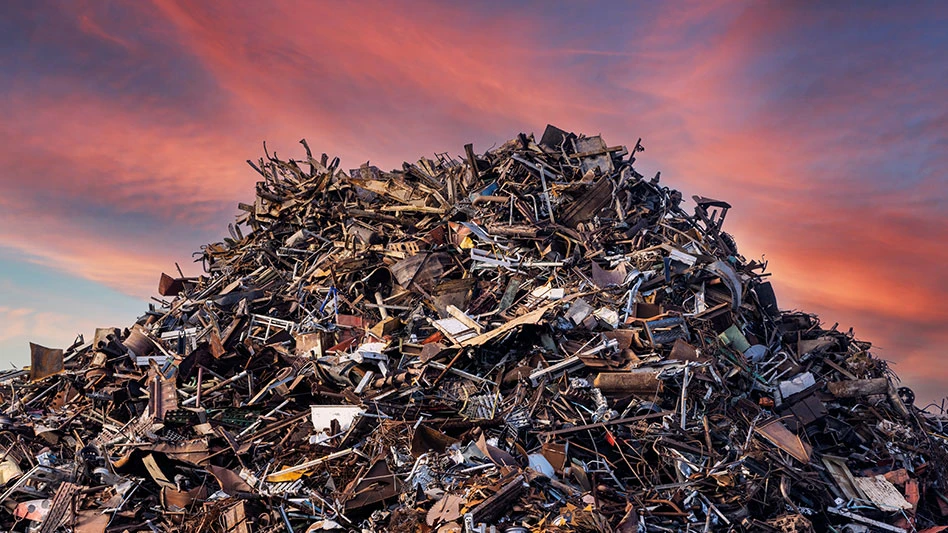Pomp and circumstance aside, when the calendar turned to reveal the date January 1, 2000, mankind did not suddenly emerge into a new Jetsons-like era of hovercrafts and ray guns. For better or for worse, recyclers are confronted with the same challenges and opportunities to turn a profit while processing several types of metal, paper, plastic and other materials used by mankind the same way they were used in 1999.
Doomsayers fearing global economic collapse (and worse) with the change of calendar might be heartened to know that stability is actually the most prevalent theme cited by those forecasting how markets for recyclables will shape up in the year 2000.
By no means is North America immune from a recession, but at the very least the power grid shutdown scenario (as of this writing, on January 6, anyway) seems to have been avoided. Perhaps the only question remaining is when the excess tin-plate in the form of cans of Spam and potted meat purchased for the pending apocalypse will hit the ferrous market.
Energy in the literal form—electricity and natural gas—continues to flow freely with the change of the calendar. What some recyclers are concerned about is energy in the figurative form: the commitment and effort by companies, institutions and individuals to recycle and to “buy recycled.”
When that energy is lacking, municipal recyclers see it in their participation rates and, ultimately, their diversion rates. When that energy is lacking and the results demonstrate it, it becomes easier for elected officials and administrators to cut back on recycling programs and not meet much resistance to those cuts.
Several reasons are cited for the perceived lack of energy. The shifting of environmental advocacy groups’ attention away from recycling and toward issues of global warming and land use is often cited. Some observers have also theorized that there is a feeling among much of the public that recycling is a “done deal,” and that if newspapers and cans are taken out to the curb, then the recycling battle has been won.
In a capitalist society, another reason that cannot be discounted is that recycling has just not paid off in the last couple of years. Dick Weaver, the president of Wise Recycling LLC (this month’s cover story subject), notes that obtaining used beverage cans has become increasingly challenging for the company. His findings are that in a full-employment society, many people who used to bring their cans to a redemption center are too busy to do so, and they don’t need the few dollars pressingly enough to find the time.
One more observation that Weaver offers is that the generation that grew accustomed to salvaging metal items for Depression-era income and for the war effort represents a dwindling part of the population. While Baby Boomers like to tout Earth Day 1970 as a turning point for recycling, the 1930s and 1940s were a time when salvaging and recycling represented a societal imperative, and some members of that generation carried that attitude forward—much to the benefit of the scrap and recycling industries.
So 2000 is here, and the electrical energy is still flowing. Now, the recycling industry needs to tap into some of that intangible energy that will keep the industry moving forward.

Explore the July 2001 Issue
Check out more from this issue and find your next story to read.
Latest from Recycling Today
- Altilium produces EV battery cells using recycled materials
- Brightmark enters subsidiaries of Indiana recycling facility into Chapter 11
- Freepoint Eco-Systems receives $50M loan for plastics recycling facility
- PET thermoform recycling the focus of new NAPCOR white paper
- Steel Dynamics cites favorable conditions in Q1
- Hydro starts up construction in Spain
- Green Cubes unveils forklift battery line
- Rebar association points to trade turmoil





